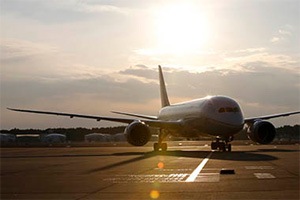Indian carriers, which have seen considerable stress in earnings, are beginning to reap the benefits of lower ATF (aviation turbine fuel) prices, in line with softening crude prices.
This has also resulted in a rally in the share prices of listed carriers like Jet Airways and SpiceJet, especially on Friday after a further 7% decline in crude prices on November 27 to $72.58 per barrel. Brent crude has fallen 29% in the last three months.
Crude oil prices fell sharply on November 27 to a four-and-a-half-year low after the Organization of Petroleum Exporting Countries decided against a cut in oil production. Analysts were expecting Opec to cut output by 1.5-2 million barrels per day in the wake of declining oil prices.
In the last three months, ATF prices have fallen by as much as 11% and, since January, price of the jet fuel has declined 18%. ATF prices account for 40-60% of the overall costs that an airline incurs. Also, different Indian states levy different taxesof up to 30% on sale of ATF.
On Friday, Jet Airways’ shares rose 20% and hit the upper circuit on the BSE to close at Rs 322.05 per share. SpiceJet’s shares gained 18.5% to close at Rs 18.24 per share.
Jet Airways’ shares have risen nearly 50% since September while SpiceJet’s scrip has gained more than 60% in the last three months.
The beleaguered SpiceJet, which has seen accumulated losses increase with each passing quarter, also received a shot in the arm after investor Rakesh Jhunjhunwala picked up 1.4% in the company from the open market for a total investment of Rs 13.41 crore. Jhunjhunwala’s investment in SpiceJet, though miniscule, could send out a positive signal to investors as the company scouts for investment to help it turn operations around.
SpiceJet chief operating officer Sanjiv Kapoor told FE on Friday that that the airline will save over Rs 300 crore on its fuel bill during FY15. The no-frills carrier’s fuel bill for FY14 stood at Rs 3,260 crore.
“India has the lowest fares on average in the world and ATF price cut is just relief for the airlines on the cost side, which is much-needed,” a SpiceJet spokesperson said in an email on Friday.
“Aviation fuel prices in India have been 40-60 % higher than the rest of the world (including taxes). Any further reduction is fantastic for our cost situation.”
A senior Air India official told FE that the national carrier has saved Rs 55 crore on fuel expenses during November. He declined to be identified.
“The aviation industry has been clamouring for ATF to be labeled as a declared good so that it is taxed at 4% against the current rates of up to 35% . If this comes through, the aviation industry will benefit greatly,” the Air India official added.
Emails sent to GoAir, Jet Airways and IndiGo on Friday afternoon remained unanswered till press time.
According to Centre for Asia Pacific Aviation (CAPA), Indian airlines are expected to post losses of $1.3-1.4 billion in FY15, down from the combined loss of $1.7 billion last year.
However, analysts expect airlines to post better earnings in the December quarter sequentially due to the decline in ATF prices.
“(The fall in ATF prices) will help recover some of the losses incurred by the airlines during the April to September period,” said Amber Dubey, partner and head of the aerospace and defence practice at KPMG in India. “But this is not sustainable relief. Governments of the five states that levy the most tax on ATF and MRO (maintenance and repair overhaul) services will have to abolish these levies to create a healthy aviation sector.”


